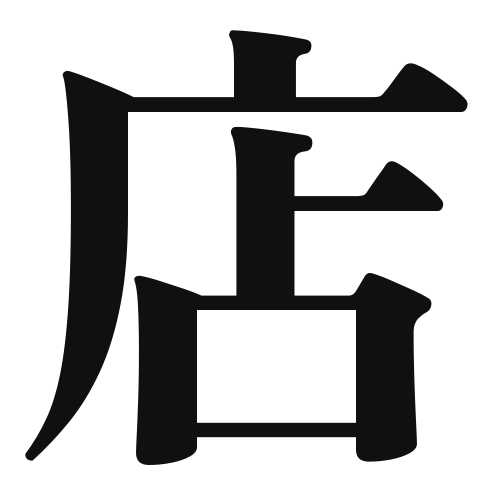1. Overview of Meaning
The kanji “店” (pronounced “ten” or “mise”) means “store” or “shop.” It refers to a place where goods are sold or services are provided to customers.
2. Formation and Radicals
The kanji “店” is a compound character that combines two elements: the radical “土” (meaning “earth” or “ground”) and the phonetic component “店” (which suggests the sound). This character represents a place built on the ground where commerce occurs.
The radical “土” indicates a connection to the earth, emphasizing the physical location of the store.
3. Examples of Usage
Common words and phrases that include “店” are:
- 書店 (shoten) – bookstore
- レストラン (resutoran) – restaurant
- コンビニ (konbini) – convenience store
Example sentences in daily conversation:
- この近くにいいレストランがありますか? (Kono chikaku ni ii resutoran ga arimasu ka?) – Is there a good restaurant nearby?
- 私は書店で新しい本を買いました。 (Watashi wa shoten de atarashii hon o kaimashita.) – I bought a new book at the bookstore.
4. Synonyms and Antonyms
Similar kanji with related meanings include:
- 商店 (shouten) – a shop or store, often used for smaller, local businesses.
- 店舗 (tenpo) – a retail store or outlet, often used in a more formal context.
Antonyms include:
- 工場 (koujou) – factory, which refers to a place where goods are manufactured rather than sold.
5. Cultural and Historical Background
The concept of “店” is deeply rooted in Japanese culture, reflecting the importance of commerce and trade in society. Traditional markets and modern shopping districts both feature various types of “店.”
Proverbs and idioms related to “店” include:
- 「店を構える」 (mise o kamaeru) – to open a store, indicating the establishment of a business.
- 「店の繁盛」 (mise no hanjou) – the prosperity of a store, often used to wish success to a business.
